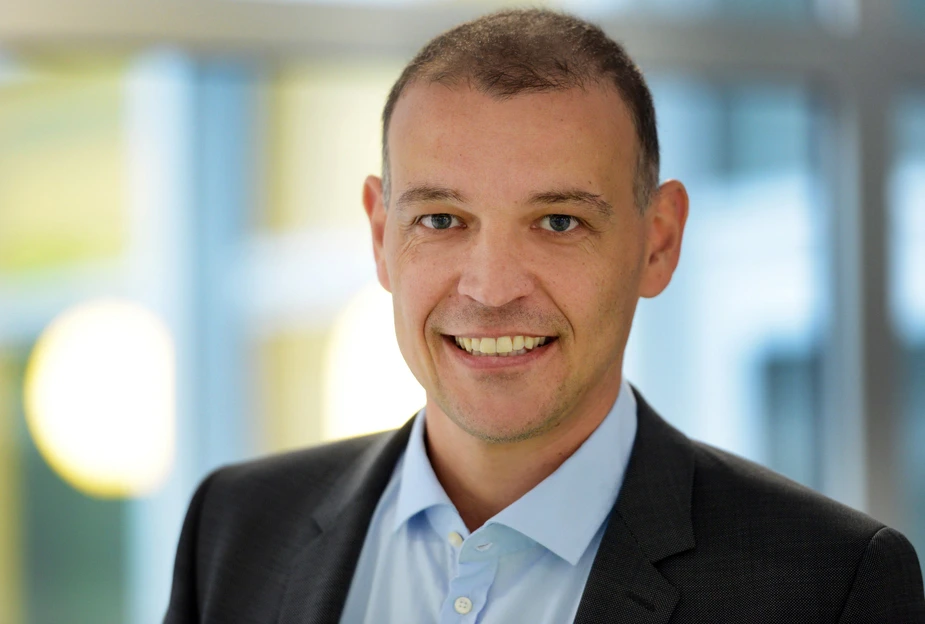WISTA-MANAGEMENT GMBH will focus more on service
In conversation with CEO Roland Sillmann
Roland Sillmann became managing director of WISTA-MANAGEMENT GMBH on January 1st. He got on board as co-managing director last summer alongside Hardy Schmitz, who has since gone into retirement. However, Sillmann is no stranger to the Technology Park Adlershof. He has been taking care of business at the Adlershof start-up centres IGZ and OWZ. In the following interview, he tells us about his plans for the Science City and other projects in Berlin.
Where does Adlershof stand today?
Roland Sillmann: We are the most successful site for high technology in Germany. I have the results of our annual survey fresh on my desk. About 16,000 people work in the Science City Adlershof. In addition, there are 6,500 students from the institutes of the Humboldt-Universität. Revenues, budget funds, and subsidiaries amounted to 1.887 billion euro which is a 3.4 % increase to last year. We have reached a status here in Adlershof that has ignited a whole new phase. The acquisition of Trumpf Lasertechnik and Würth Elektronik eiSos last year made it quite clear: our site is attractive for medium-sized companies. We want to keep this growth curve going with similar acquisitions. LOPTEK GmbH, a fibre optics company, is coming to Adlershof, and the Landeslabor Berlin-Brandenburg, the state laboratory for the capital region, will concentrate its competencies in analytics here, too.
Will the Technology Park change?
We want to focus more on service. This will affect all development stages of the companies on our site – from start-ups to the site’s pioneers. It will also require organizational changes. The IZBM GmbH, formerly a subsidiary company of WISTA responsible for our start-up centres, will now come on board the mothership.
How are you going to focus more on service?
One example is our new Adlershof Accelerator that aims at supporting start-ups entering markets. This will profit founders from the energy sector as well as providers of overlapping services, for example, big data and IT applications. We have had 24 start-up teams applying, six to eight of which will have the chance to turn their ideas into reality with experienced entrepreneurs at their side. Moreover we want to increase awareness on the succession planning process among business owners.
…because the Adlershof pioneers are increasingly seasoned?
The Technology Park Adlershof is now 25 years old. Our first companies weren’t founded by university graduates, but by seasoned scientists of the Academy of Sciences of the GDR. I’m not trying to say that you should stop doing business once you hit retirement age. One should, however, deal with the issue of succession planning early enough. According to a DIHK survey, 50% of companies who are due for a succession were late looking for a suitable candidate. On the other hand, 50% of those entrepreneurs looking for a new business are unsuccessful. We want to support this matchmaking process.
You have strong ties to business networks. How close are you to research?
I was a researcher myself at the Institute for Solar Energy Research Hamelin for five years. Consequently I’m not one to focus on growth rates because I know that research and innovation are essential. Cooperation between science and business is a hallmark of Adlershof. Not only do we want to keep it that way, but we want to intensify our activities in the context of the Analytic City Adlershof. We are currently establishing a network for advanced materials in cooperation with Humboldt-Universität, and we will tackle the issue of digitalizing medium-sized companies with our scientific partners on the site.
What about other projects outside of Adlershof you are engaged in?
The innovation centre “CHIC“ in Berlin-Charlottenburg is getting positive feedback. The occupancy rate is at 90%. Two companies have grown to a point at which they don’t require the incubator anymore. They are looking to stand on their own two feet. However, it is more difficult for founders in Charlottenburg to find suitable premises than in Adlershof. The FUBIC – which is the technology and start-up centre for Berlin’s Southwest – is now in its second planning phase. The early involvement of the public in the planning process went very smoothly. And with regard to the re-use of Tegel Airport: Tegel Projekt GmbH is continuously working on converting the premises into a technology park. There are a lot of projects underway.
How do you stay inspired?
Books give me inspiration. I pass the time during my one-hour drive to work with audio books. I’m currently listening to the The Black Swan by Nassim Nicholas Taleb. He characterizes significant discoveries, historic events, and artistic accomplishments as black swans. It’s basically about things that cannot be planned.
Which qualities do you value?
Passion and equanimity. It is important to be committed to a cause, but without running one’s head through the wall.
What do you do in your free time?
I spend it with my family and I like sport. I also like to cook. I go running at least three times a week which is also great exercise for our one-year-old Labrador retriever. I also coach the football team of one of my sons.
You love football which is why you want to support the young talent of 1. FC Union?
Yes, we are currently talking to the people of the club’s training programme. Only very few manage to become professional players, their training is very important. Young talents have many skills such as team spirit and motivation that are also essential in professional life. Maybe they are the young talents that could fill the internships and apprenticeship vacancies offered by the companies from our site.
